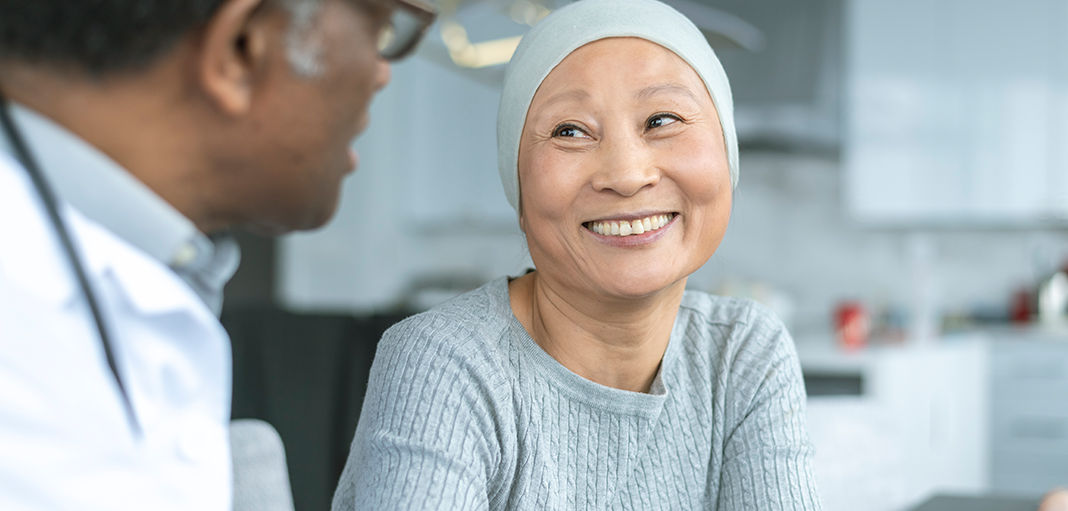Enroll with us in a few easy steps
When you’re living with breast cancer, it’s important to take care of both your physical and mental health. Good communication with your health care team, finding support in your community, exercising and eating well are just a few ways you can take charge of your health and maximize your quality of life.
Take care of yourself mentally and physically.
Living with breast cancer can be challenging and stressful. There are many things you can do to help manage stress and make it easier to manage your condition.
Promoting mental health.
Talk to your friends and family often about how you’re feeling, both physically and mentally. You may also want to seek support from an individual counselor, a trusted medical professional such as your doctor and others who have breast cancer.
Some research shows that joining a support group has health benefits beyond the simple relief of sharing your story and working through your feelings—there can be actual improvements to quality of life and survival as well.1 Others who have breast cancer can share tips on dealing with practical problems or coping with side effects. Support groups can also be helpful to your family members.
You can easily find support groups online or get a recommendation from your health care team. Not all groups are the same, so if the first group you try isn’t right for you, it may be worth trying a different group. Some support groups may charge a fee. Check with your insurance provider to see if the fees may be covered.
Some additional tips:
- Communicate with your doctor about any concerns.
- Continue to follow advances in medical research; cancer treatment continues to advance at a rapid pace.
- Your doctor can help you determine if any additional medications might help you manage your symptoms.
Promoting physical health.
Taking good care of yourself includes eating well, avoiding alcohol intake, and staying as active as you can. This is good advice for anyone, but it is especially important for breast cancer patients.
- Eat healthy foods, including fruits and vegetables, organic foods, and fish high in Omega-3 fatty acids (salmon, sardines). Limit your alcohol intake and foods high in fat and calories.
- Exercising regularly can help you control your weight, and it can also reduce stress and help you feel good about yourself.
- Keep up with all scheduled screenings. Stay current on flu shots and other vaccinations as recommended by your doctor and monitor your blood and cardiovascular health. Report any physical changes to your doctor. Take any endocrine therapy medications exactly as prescribed; failure to do so may reduce their effectiveness and create other health problems.
For more help.
Your CareTeam is available to help you manage your symptoms, find support, and help take care of both your physical and mental health.
This information is not a substitute for medical advice or treatment. Talk to your doctor or health care provider about your medical condition and prior to starting any new treatment. CVS Specialty assumes no liability whatsoever for the information provided or for any diagnosis or treatment made as a result, nor is it responsible for the reliability of the content.
CVS Specialty does not operate all the websites/organizations listed here, nor is it responsible for the availability or reliability of their content. These listings do not imply or constitute an endorsement, sponsorship, or recommendation by CVS Specialty.
Your privacy is important to us. Our employees are trained regarding the appropriate way to handle your private health information.
1.National Institutes of Health, National Cancer Institute, Cancer Support Groups. Accessed May 30, 2018.

